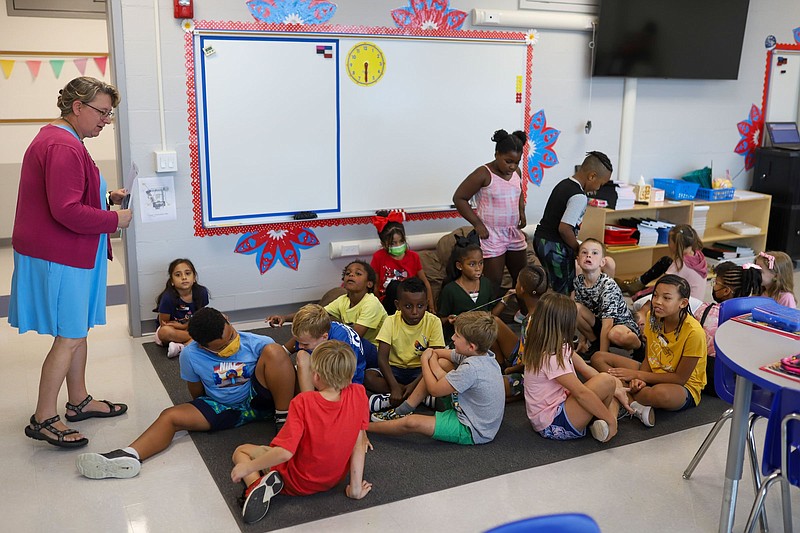Class size limits for K-12 schools in Tennessee would no longer be state-regulated under new legislation filed by Sen. Jon Lundberg, R-Bristol, on Tuesday.
Instead, decisions about student-teacher ratios, class size maximums and class size averages would be left to each school district. The bill also removes a prohibition against split-grade classes -- the combining of two or more grades into one classroom for regular instruction.
Lundberg, who chairs the Senate Education Committee, said he proposed the bill after discussions with teachers and education leaders in rural districts.
"I had concerns from several districts (that) class sizes were limited, and frankly, I just thought it would be better and more effective to turn that back over to the (local education agency)," Lundberg said in a phone call.
The Chattanooga Times Free Press asked Lundberg which districts he had spoken with, and he clarified the discussions involved a group of teachers from several districts, though he could not recall which. The teachers' concerns surrounded career and technical education class sizes, which are capped at 25 students.
"I thought, well, let's set out state guidelines for suggested class sizes, optimal class sizes, but give that discretion to the locality which should know best what classes would be most appropriate," Lundberg said.
Currently, maximum class sizes are as follows:
– Grades K-3: 25
– Grades 4-6: 30
– Grades 7-12: 35
At Hamilton County Schools, the average pupil-teacher ratio is 18:1.
Lundberg said if the bill passes and it creates an unhealthy situation for students and teachers, he would work to repeal it.
"The idea is not to create a collegiate atmosphere where you have 300 kids, obviously," he said. "It's, again, to give that discretion locally."
Lundberg added he generally believes smaller class sizes are better for students, but districts have different needs depending on a number of factors.
Jill Weitz, director of communications for UnifiEd, a local education advocacy organization, said the bill is misguided.
"I would assume that this is an attempt to address the teacher retention issue that we have," Weitz said in a phone call. "And while that is something that is absolutely essential, we do not feel that this is the correct way to go about addressing that issue. "
Kendra Young, director of UnifiEd, said the bill would only worsen teacher shortages.
"It's actually going to exacerbate the problem rather than solving anything because we're not solving any of the underlying issues," Young said in a phone call.
Young spent 20 years teaching at Hamilton County Schools before transitioning to her current role in 2022. In her last year of teaching, she taught secondary-level science.
"There were six different lab activities that I cut from my syllabus last year simply because my class sizes were so large," Young said, adding that classes with around 20 students are most effective.
Weitz said small classrooms encourage individualization.
"When you have smaller classroom sizes, you will have less disruption," she said. "You'll have more opportunities for hands-on and participatory learning. Increase our classroom sizes, the more that those opportunities are going to be diminished."
The Hamilton County school district is already dealing with overcrowding at several schools, but most notably The Howard School, which is at 180% capacity.
District officials said if the bill passes, they are not yet sure what the impact will be.
"We are reviewing the legislation and have nothing to share about its possible impact at this time," district spokesperson Steve Doremus said in an email. "Like all education-related bills, we will monitor its progress through the legislature and have ongoing conversations about it with members of our legislative delegation."
Contact Carmen Nesbitt at cnesbitt@timesfreepress.com or 423-757-6327.

